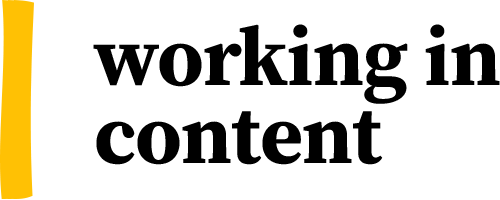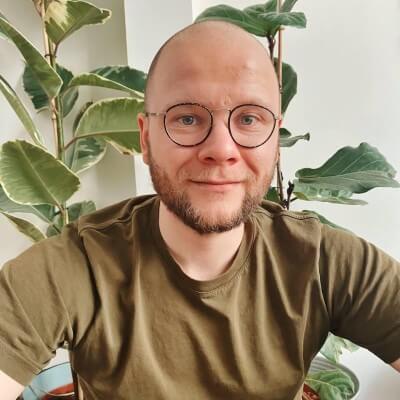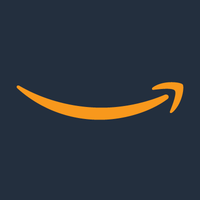On this page:
Nicole Michaelis is a senior UX writer, podcast host, consultancy owner, and writer. We chatted to Nicole about the world of UX writing, and unpack the steps she’s taken in her career to date. Read on to find out what it’s like to work in UX at Spotify, and why Nicole enjoys both the freelance world and being employed.
She also shares lots of top advice about things like studying UX writing, how to create a portfolio that impresses at job interviews, and how best to equip yourself if you plan to work in UX at a startup.
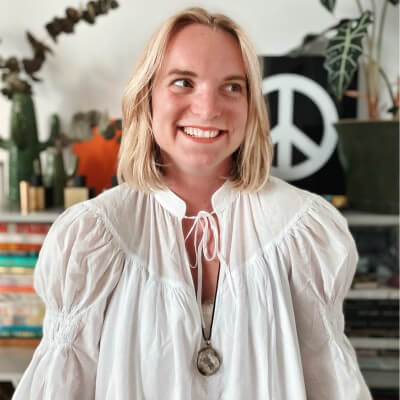
Career history, at-a-glance
![Spotify logo]() SpotifySenior UX WriterFebruary 2021 - Present
SpotifySenior UX WriterFebruary 2021 - Present![Spotify logo]() SpotifyUX WriterJanuary 2020 - February 2021 (1 year, 2 months)
SpotifyUX WriterJanuary 2020 - February 2021 (1 year, 2 months)![Berghs School of Communication logo]() Berghs School of CommunicationCourse Director: Content Marketing (Part-time)September 2019 - Present
Berghs School of CommunicationCourse Director: Content Marketing (Part-time)September 2019 - Present![Nicoletells AB: Writing Studio logo]() Nicoletells AB: Writing StudioFounderJune 2014 - Present
Nicoletells AB: Writing StudioFounderJune 2014 - Present![SAS - Scandinavian Airlines logo]() SAS - Scandinavian AirlinesUX Content Lead (freelance)August 2019 - February 2020 (7 months)
SAS - Scandinavian AirlinesUX Content Lead (freelance)August 2019 - February 2020 (7 months)![&frankly logo]() &franklyCopywriter and Content Manager (freelance)September 2018 - August 2019 (1 year)
&franklyCopywriter and Content Manager (freelance)September 2018 - August 2019 (1 year)![Astrid.ai logo]() Astrid.aiHead of Content (freelance)October 2017 - November 2018 (1 year, 1 month)
Astrid.aiHead of Content (freelance)October 2017 - November 2018 (1 year, 1 month)![Referanza logo]() ReferanzaCMOFebruary 2018 - October 2018 (9 months)
ReferanzaCMOFebruary 2018 - October 2018 (9 months)![Referanza logo]() ReferanzaConsultant Content StrategistAugust 2016 - January 2018 (1 year, 6 months)
ReferanzaConsultant Content StrategistAugust 2016 - January 2018 (1 year, 6 months)![Hyper Island logo]() Hyper IslandDigital MarketerDecember 2016 - March 2018 (1 year, 4 months)
Hyper IslandDigital MarketerDecember 2016 - March 2018 (1 year, 4 months)
Early career
Nicole is German and grew up in the US as the oldest of four sisters. Her dad, as a Physics Professor, was very eager for his four daughters to study physics or engineering; adopting it as a long-term career path.
“I had that kind of pressure on me when I was pretty young and still in school. I always really enjoyed writing though and made it pretty clear to my parents that I would love to do something with writing later in my career. My dad jokingly said to this, “well, you can write your dissertation!”
“He made it pretty clear that he didn't think anything writing-related or content related would be a good career choice for me. I’d say I was pretty influenced by that.”
Nicole says that she went on to study engineering after graduating, but she felt as though it wasn’t for her. After four semesters and having obtained a pre-diploma in Engineering, Nicole knew she had to make some changes.
Alongside her studies, she had been writing quite regularly. Her writings focused mainly around the subjects of poetry and fantasy fiction, and she posted her work in various forums quite often.
“I kind of dropped out of engineering school, and I felt that everything was now ‘open’ for me. I thought, ‘what am I going to do now?’ I wanted to make use of the stuff I had learned and the time I had invested, whilst at the same time, I really wanted to get on and do something I really wanted to do.
“It sounds like a very strange next step to take, but I decided to go to business school. I had been thinking about what makes someone a successful entrepreneur, and I made that connection from there. I thought if I could figure out how to run a business, maybe I could turn that into something to combine writing and my technical knowledge.”
Nicole really enjoyed her studies and felt she had a natural flair for the subject of business. She also noticed that in Germany at that time, there was a demand for people who could write proper English content for some of the local startups and companies.
Nicole found that she naturally transitioned into doing more marketing work after moving to Stockholm to study for a Masters in Marketing.
“Whilst I was studying, I started working for a couple of startups where there was a clear need for support across marketing. I don't know if it was just what was happening in the market back then, or if it was just the situation I was in, but I can honestly say that I did feel like having those additional marketing skills, besides just those related content, paid better.
"I still believe this is an issue when you're working in content; that there are still plenty of people in companies who don't value content as much as they value other things.
"Like, for example, that person who can run your Google Ads or Facebook Ads. Companies seem to have a far easier time budgeting for that type of activity because they’re confident they’re going to see a quick return on their investment.”
After completing her Masters, Nicole took on her first full-time job at Hyper Island, a design school.
“My official title was ‘Digital Marketer’, but it really was more of a content marketing role. I would interview students and teachers and try to create portraits to use for Hyper Island’s marketing. It was very content-focused because they ran a variety of classes and courses on disciplines like UX and digital media. So that's how I first got some exposure to UX.
“I think user experience (UX) is just extremely interesting to work on. I feel as though it's much more ‘moral’ and ethical to actually want to give people a better experience.
“I wouldn't say it's more strategic than, for example, doing marketing content, but it's strategic in a different way - like you can test things for example. It also feels more collaborative.
"For me personally, I didn’t feel like a ‘marketing person’; I felt much more like I belonged with the people that were passionate about design and UX."
“Their professional mindset seemed far more like mine; wanting to try out things, prototype things, do them myself, ‘if they fail, I'll try something else’, etc. That's something that is really at the core of a lot of design processes, so with UX I just felt like, ‘wow, this really feels like home.’”
By autumn 2017, she was also freelancing for a couple of clients; delivering content-related work for them. Nicole was putting some of her recently acquired digital marketing skills to the test, responding to the influx of requests from her clients. They were asking not only for content-related support, but support for SEO and their paid social campaigns.
Nicole supported our marketing team with a detailed market analysis and entry strategy for a high technology medical device. She managed perfectly to get insights into a very specific time in a short manner and worked precisely as well as goal-oriented. We were thankful to have her as part of our team.
source: LinkedInNicole’s first senior content role
Alongside the freelance work, a year or so later she also picked up a new role as a CMO at a Sweden-based startup.
“With this specific startup, I was actually already freelancing for them on the side - creating content for their blog and helping them with their website. They reached out and said they were really happy with my work and the strategic insight I had been providing, and essentially asked me if I would be up for taking on a role there as CMO.
“I mean, I was 25 at the time. I think being a CMO at 25 is also a little bit nuts. But, I did feel like it was such a huge opportunity for me. It came with a big pay rise of course, and I got to build my own team and run some things that sounded really exciting.
“I'm usually pretty up for trying out new things and just seeing where they take me. I could hire people to take care of the parts I wasn’t so comfortable with, leaving me to focus on the content or more strategic work.”
What happened, however, is that Nicole ended up managing and working on all of the marketing, and she realised pretty quickly that it just wasn’t for her. She did really enjoy the content marketing side of things though, and simultaneously she was trying to get more involved in the product experience side of the organisation - with the desire to deepen her knowledge and expand her skills in that area.
“My job was very much focused on lead generation, and I felt like I wasn't really making the impact I wanted - there were things about the product I was eager to improve though.
“I was feeling more and more like I should be focusing on the experience stuff. I really wanted to do it and felt I’d be good at it. I am aware that maybe it sounds ‘privileged’ to say that I took steps in my career ‘because I felt more like it.’”
Balancing full-time employment with freelance work
Nicole says she was usually freelancing throughout her career - even whilst she was working in full-time employment. She believes that it’s been very important for her to keep that mix.
“That's always one of the first things I say if someone wants to make me a job offer; I have got to continue to freelance on the side. Of course, I do it at a ‘lower level’ when I'm employed, but I need to continue doing both because you learn more, and at a quicker rate, from the freelancing side.
“You get opportunities to work on stuff that I honestly, truly believe benefits your full-time work too. And of course, there’s the fact that, once you've done the work of building your own business and creating your own network, you probably aren’t going to want to throw all those eggs into someone else's basket!
“Luckily, it’s something that most of my employers have been cool with, and I don't think my work has ever suffered because of it. As a result, I’ve been able to get many projects under my belt, meaning that new people would just reach out and be like, ‘oh, I’ve heard of this person’, or ‘this person worked with you and recommended you’. It just kept coming, and it was pretty amazing.”
The demand for Nicole’s services meant that she was able to turn casual freelancing into a formal writing and strategy consulting business (Nicoletells AB); moving from tasks like writing blog posts and writing landing pages to helping clients develop a tone of voice, writing copy for their apps, working on localisation processes, and even helping organisations to build up their own in-house content strategy or content design team.
“I'm not afraid to say that it, of course, pays better than most full-time employed work does.
“In fact, I think I have a 50% content marketing and 50% UX writing ‘bipolarness’. I have a really hard time completely saying ‘no’ to working on content marketing, because there's still so much shitty content marketing out there, and I feel like it’s not being fully utilised - especially in relation to thinking about a customer's experience and the customer journey.
"When you think about the marketing and sales funnel, I truly believe that by understanding that better and making your content marketing more about the experience, it's going to be so much more effective.
“I think there's a pretty close link between that and the ‘traditional’ UX writing roles, and I'm really passionate about that link.
“In my teaching role, I try to demonstrate that you can do both and that they pull on each other. To that end, there are some tools that are generally more popular among UX writers that I've used in my classes for content marketing.
“It also works the other way around though; putting a ‘content marketing lens’ on some things has really benefited some of my UX writing projects as well.”
Nicole is the most efficient person I have ever met. She sees solutions, not problems, and magically structure them in her head. She has great leadership skills and a unique ability to make people understand. She backs ideas with evidence and supports her beliefs. The amount of stuff this woman has achieved at a young age is remarkable. I am excited to see what she conquers next.
source: LinkedInTeaching content marketing at Berghs School of Communication
Nicole says that even at the time she was working at Hyper Island (back in 2017), she sought out speaking and teaching opportunities.
“I feel very strongly about wanting to give people my knowledge to enable them to do something, because I know how hard it is to find decent resources to learn from. I know how frustrating it is to Google something and just find the same answer over and over again - you know, when those results just don't hit the mark for you.
“So, pretty early on in my career (and I think this comes from being the oldest of four girls and being the one who usually ‘explained stuff to my siblings(!)), I knew that I wanted to go into some kind of teaching role at some stage.”
The opportunity to teach at Berghs came up through a former teacher of the course who Nicole knew. She had coffee with them a couple of times and was told that they didn't want to do the course anymore.
“I know Bergh's interviewed a couple of people and I don't know why they decided to go with me - but they did. And I don't think they ever regretted it since, because I’ve continued to rate highly in my course reviews.
“Funnily enough, the main feedback I get is something along the lines of ‘Nicole is a really good teacher that knows her shit, but she's also hilarious’, which I'm very proud of.
“I'm also really open with where I feel I have gaps, and I’ll tell my students ‘I'm teaching you content marketing now, but please always keep in mind that this is based on my experiences and my opinions’. I think they truly appreciated it because I know that when I've done any kind of course, the teacher will act a little bit like a ‘know it all’, and I don't like that.
“Instead, I really think we need to be more transparent. After all, we're working in a world that is ever-changing. And we’re all biased.
"There are definitely some things that we call ‘best practice’, but I think it's always good to keep questioning them."
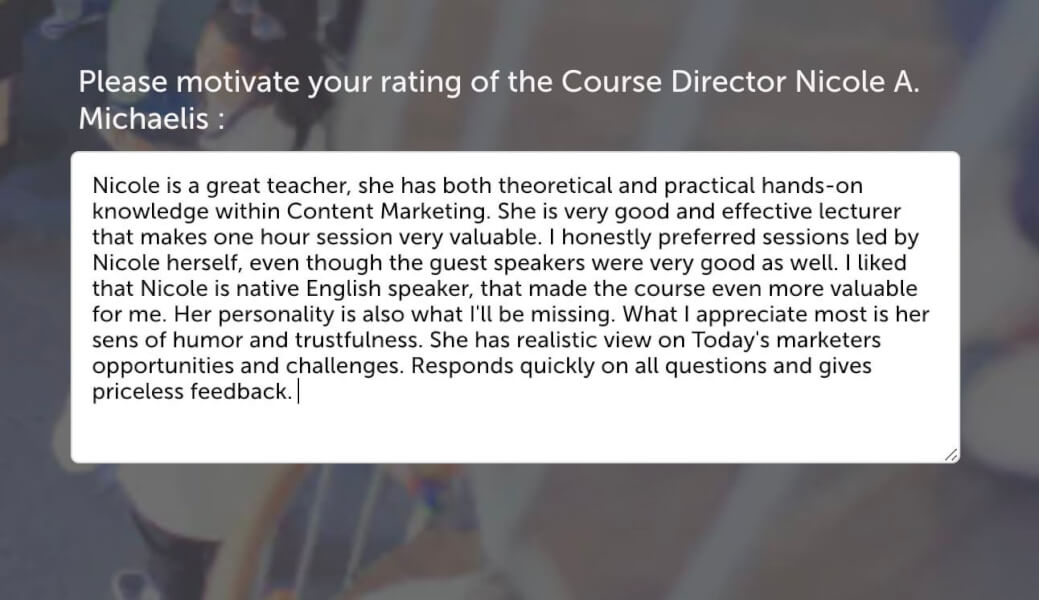
Working as a UX Writer at Spotify
Just as 2020 was kicking off, Nicole took up a role at Spotify as a UX Writer, though this was initially as a full-time contractor and not a full-time employee.
Before she had moved to Sweden years ago, she had had her eye on a role at Spotify after researching potential new employers.
“The only employer I had noticed and that I thought could be fun to work for was Spotify. And when I got the UX role, I was like, ‘wow, this is happening!’
“It was great, and I was really excited because I use Spotify a lot. I was an early adopter of it, and I already really liked a lot of the things they did when it came to design and copy.
“I also thought they were a really great example of a well-designed app that doesn't over explain things, and pushes the boundaries of what we consider a design convention when it comes to a listening experience.”
Joining Spotify as a contractor, Nicole describes what would be the first of two onboarding phases she’d have there as very short.
“I would say it was maybe like a week or two, and then I hopped right onto projects. I was pretty hands-on really quickly. I noticed that when I eventually joined them as an employee, the onboarding was definitely a much slower process.
“In the team that I ended up joining as a fully-fledged employee, I was the first UX writer they had, so I needed to build everything from scratch.
“What’s more, I had started in the middle of the pandemic, so everything was done remotely. I had to quickly figure out how people worked with each other!”
Nicole says that she spent some time trying to figure out how to fit the UX writing discipline into Spotify’s existing protocols and processes.
“I was trying to work out who would be potentially requesting stuff from me, who the main stakeholders were, how feedback would be gathered, how I’d work with and support the designers - things like that.
“I started setting up multiple processes and I also tried to document things right from the beginning. At the time, my team’s product (Soundtrap) didn't have a UX tone of voice, and they didn't have product copy patterns, so it all had to be developed from scratch.
“I created a glossary with the different terms that we were using to try to kind of narrow that down, and we also built up localisation from scratch.”
Alongside these kinds of projects, Nicole had also started working on current releases.
When asked about the piece of work or project Nicole feels most proud of during her time at Spotify so far, she immediately references the process set-up work from her first 12 months and then a Spotify app she had been working hard on.
“Soundtrap Capture is a creator tool that Spotify owns. It basically lets you (as a musician) create your own music, together with other people.
“We launched the app last October, and I basically did the UX writing for it. It's still a pretty small app and it doesn't have a lot of features yet, but being involved from the beginning; conceiving and creating that copy, I think that's definitely a project that I'm pretty proud of.”
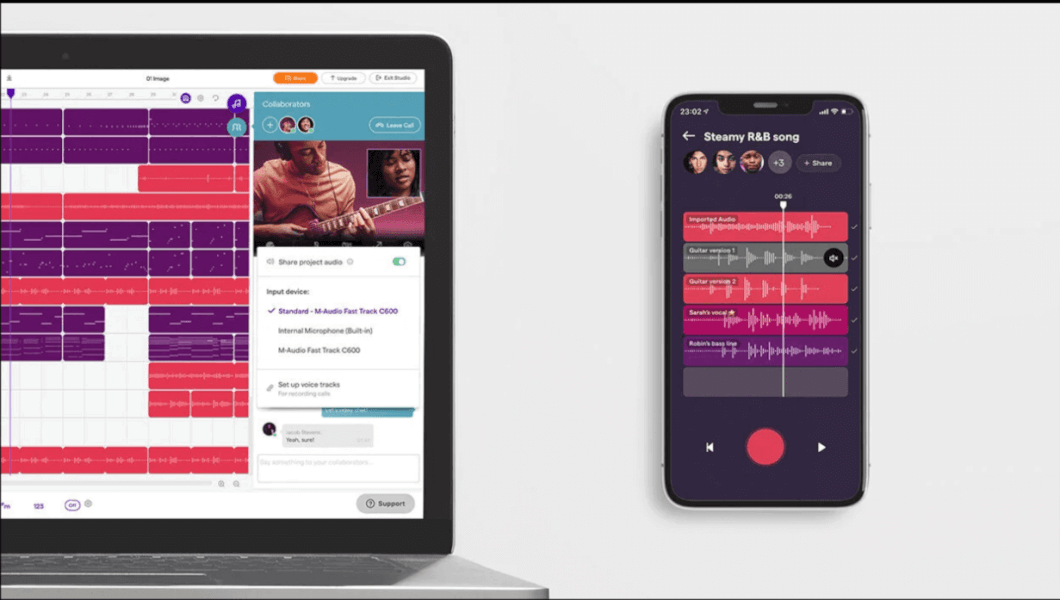
Advice, recommendations and tips from Nicole
If you could go back in time and give yourself a piece of advice at the start of your career, what would that be?
“I think my advice would be that if you're curious about something, ask if you can work on it somehow. If you want to learn something new, ask your manager if you can take a course or if they can support you in some way.
“Think beyond the scope of what you're currently doing; it keeps you more open-minded, and it also keeps the context wider than your current engagement. I think that is really important.
"No matter what you do, things are gonna change sometime, and then you're going to have to change. So just try to have that ‘lifelong learner’ approach to things."
What would you say to someone considering starting a UX writing or content marketing course (for example)? How can they assess whether it's the right thing for them?
“I usually tell people not to do a course right away. Some people are going to hate me for this now, but I'm going to say it! I've never done a course in anything that I actually wanted to do. I have a Master's in marketing, but honestly, we didn't talk about content marketing in that, ever.
“I never did a UX writing course. Instead, I tried to seek out people who I could talk to about it; mentors, people that could point me in the direction of some awesome resources. I then tried to take on free or low pay gigs to test practices out, and that worked really well for me.
“I'm not saying that will work for everyone, but I definitely think that even if you're eager to take a course, you should try to see what's out there before you dive into studying, because the problem that I see with courses is that, while they can be really great, the nature of it means it's very ‘boxed in’. They can often be quite far away from what your reality will actually look like as a UX writer, or a content designer, or a content marketer. And again, we’re all biased. That includes the people creating your courses(!).
“But if you try to figure out some things yourself and start developing your own way of thinking about UX writing, I think you can develop a completely different way of looking at the practice and how to approach things.
“With my course at Berghs, I designed the content marketing course, and broke it down into modules that I think makes sense; all with the hope that students can build their learning up from week to week. But of course, they may think about things completely differently to me, and then it doesn't make sense for them in real life when they're trying to apply this.
“This is why I think, before you ever consider a course, read up on your own, reach out to some folks to ask for advice, and see if you can figure out where the interesting angles lie for you. If you find you have a real interest in the subject based on that, then totally go for a course!
“One other thing related to this; I'm not a big fan of ‘bootcamps’. I think it's far better if the learning is a little bit more spread out, and you can maybe do some exercises and work on your own.”
What advice would you give someone who is considering a role at a startup, whether it’s as a UX writer, content designer or content strategist?
“What I tend to say is ‘don't work for a startup’ if you think you’ll struggle with taking on responsibilities or your confidence, because stuff at startups only gets done if someone ‘owns it’ and is willing to push for things and stand up confidently for their ideas.
“I've seen so many people burn out in startups because they were working really hard, yet they weren't really making an impact because they kept getting pushed over (or maybe they didn't feel like they should take responsibility for something and waited for someone else to do it, but nobody did because everyone is kind of ‘running’ in that kind of organisation!).
“I think it takes a very specific type of person to thrive at a startup, so I think it's definitely about having that confidence and the willingness to take responsibility.
“Also, you need to be okay with people stepping on your feet. That's something that I learned actually when I started working for bigger companies; I used to do that all the time when I was working with startups, but now these people in the bigger companies are getting offended because I'm stepping on their feet. For a startup, it's kind of the opposite.”
What’s one thing you’d say to people who, at this moment, are wondering how they can progress from ‘UX writer’ to ‘senior UX writer’?
“I have a lot of friends who are stuck at that UX writer level; many of whom have been working in UX writing longer than me. They’ve not yet got that promotion. I think it really is a lot about ‘showcasing’ that ownership and willingness to take responsibility for things. So maybe things like taking ownership for projects that shouldn't technically be on your desk (but are). It's all about ‘getting it done’.
“And yes, it can suck, because a particular task might actually be someone else’s responsibility, but I have seen this happen in a lot of the other companies I worked with.”
If you were preparing for a UX writer role today, how would you prepare?
“I think the first thing I’d do is read the job description closely and try to figure out what some challenges might be for me.
“So many companies, especially if you're working for a smaller company, might be hiring for their first UX writer. They don't necessarily know what they're doing, and they don't know what they're looking for.
“I have often felt in those processes that I kind of had to tell them what I thought a UX writer would do at their company. So I think really digest that job description and ask questions like ‘who would be my main stakeholder here?’ and ‘how do you work with localisation?’ or ‘do you work in sprints?’
“Asking questions can also help you figure out whether it’s a role you really want to take. I actually see a lot of roles advertised as ‘UX writing’ that essentially aren't.
“Secondly, I definitely think nailing your portfolio is the way to go. I think some people can just send in their ‘standard’ portfolio, and it can then end up not feeling very connected to the role they’re going for. So, as much as you can, actually tailor your portfolio to the job you’re applying for. Something that I also did back then was Google ‘UX writer portfolios’ and check out a couple of the more popular ones.”
For someone considering a career change into UX writing from say, a more traditional role in marketing, journalism etc, what advice would you give them?
“I think if you've worked in journalism or marketing or pretty much whatever you worked in, you likely have some relevant experience, you just didn't classify it as ‘UX writing’ when you were in that role.
“When I started applying more actively for UX writing roles, I reflected back on what I had worked on before in content marketing, or even as a copywriter, and I always found examples of something that could somehow be looked at as ‘UX writing’.
“Say if you were a journalist; you've done a lot of ‘user research’, you've probably outlined things, followed a certain goal, ‘designed’ a story in a certain way to give the reader a certain experience.
“You should never look at yourself as someone that doesn't have any relevant experience.”
Would you say there’s a particular mindset which it helps to have for UX writing roles?
“One thing that I joke about a lot, but it’s true(!), is that you need to understand engineers and developers really well to be able to collaborate with them successfully.
“If you speak their language and you can kind of joke with them and get on their wavelength, it's going to be much easier for you. I still feel like I benefit from that today, whereas some other UX writers can really struggle with this aspect; maybe because they've come from a different background where they've never really been exposed to the kind of engineering/tech mindset.”
Which industry professionals should people be following right now on Twitter?
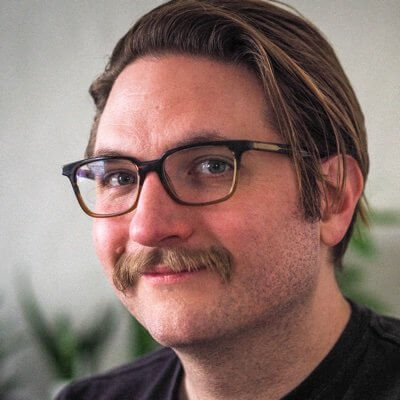 Scott Kubie A designer who writes. Amateur musician and illustrator. Chaotic, neurotic, and queer.Follow @scottkubie
Scott Kubie A designer who writes. Amateur musician and illustrator. Chaotic, neurotic, and queer.Follow @scottkubie Jane Ruffino PhD candidate in contemporary archaeologies of digital data. Content designer and UX writer. “More fun than a Vegas casino” —unnamed rapper, 2011. she/herFollow @janeruffino
Jane Ruffino PhD candidate in contemporary archaeologies of digital data. Content designer and UX writer. “More fun than a Vegas casino” —unnamed rapper, 2011. she/herFollow @janeruffinoIs there a particular book you’d recommend to someone for early in their career?
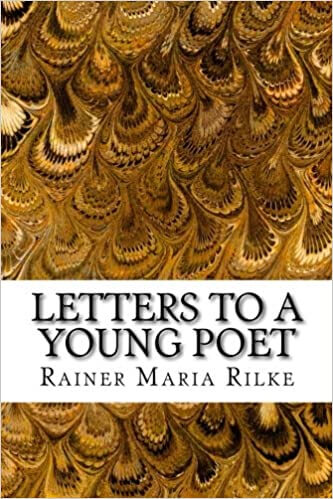 Letters to a Young Poet
Letters to a Young PoetLetters to a Young Poet is a collection of ten letters written by renowned Bohemian-Austrian poet Rainer Maria Rilke to Franz Xaver Kappus. Kappus was a 19 year old cadet at the Theresian Military Academy and an aspiring poet seeking advice from Rilke on his own poetry. Letters to a Young Poet is highly recommended for those who are fans of the works of Rainer Maria Rilke.
It's a little book where he basically had a letter exchange with someone that was struggling to become a poet. I think it's one of the best books I've ever read. It's good for anyone interested in writing or anything creative.
— Nicole Michaelis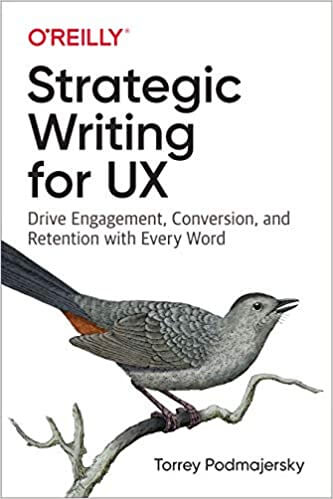 Strategic Writing for UX: Drive Engagement, Conversion, and Retention with Every Word
Strategic Writing for UX: Drive Engagement, Conversion, and Retention with Every WordUX content strategist Torrey Podmajersky provides strategies for converting, engaging, supporting, and re-attracting users. You’ll use frameworks and patterns for content, methods to measure the content’s effectiveness, and processes to create the collaboration necessary for success. You’ll also structure your voice throughout so that the brand is easily recognizable to its audience.
If you're more into UX writing - that’s the only book I read, and it’s great. Other than that, I read mainly fiction and poetry, and I encourage people to do that as well. I honestly don't believe in all self-help books and things like that.
— Nicole MichaelisNicole Michaelis: Further reading, watching and listening
- Nicole’s LinkedIn profile Connect to Nicole on LinkedIn.
- Nicole’s Twitter profile Follow what Nicole’s sharing and discussing on Twitter.
- Nicole’s podcast - Content Rookie Join Nicole (and guests) to discuss the practice (and art) of all things content.
- Nicole’s Medium profile A collection of writings, ideas and thoughts.
- Nicole on ADPList Nicole’s profile on the ADPList mentor directory.
- Ditch the voice and tone Writers In Tech podcast where Nicole talks about everything from the effects of psychedelics to ageism in the tech industry.
- Video interview with Nicole Michaelis Nicole talks about her in UX writing including project work, teaching workshops and her podcast Content Rookie.
- The UX Writing Edition - Product Crunch Online (Video featuring views from Nicole and others about how content and design can come together)
